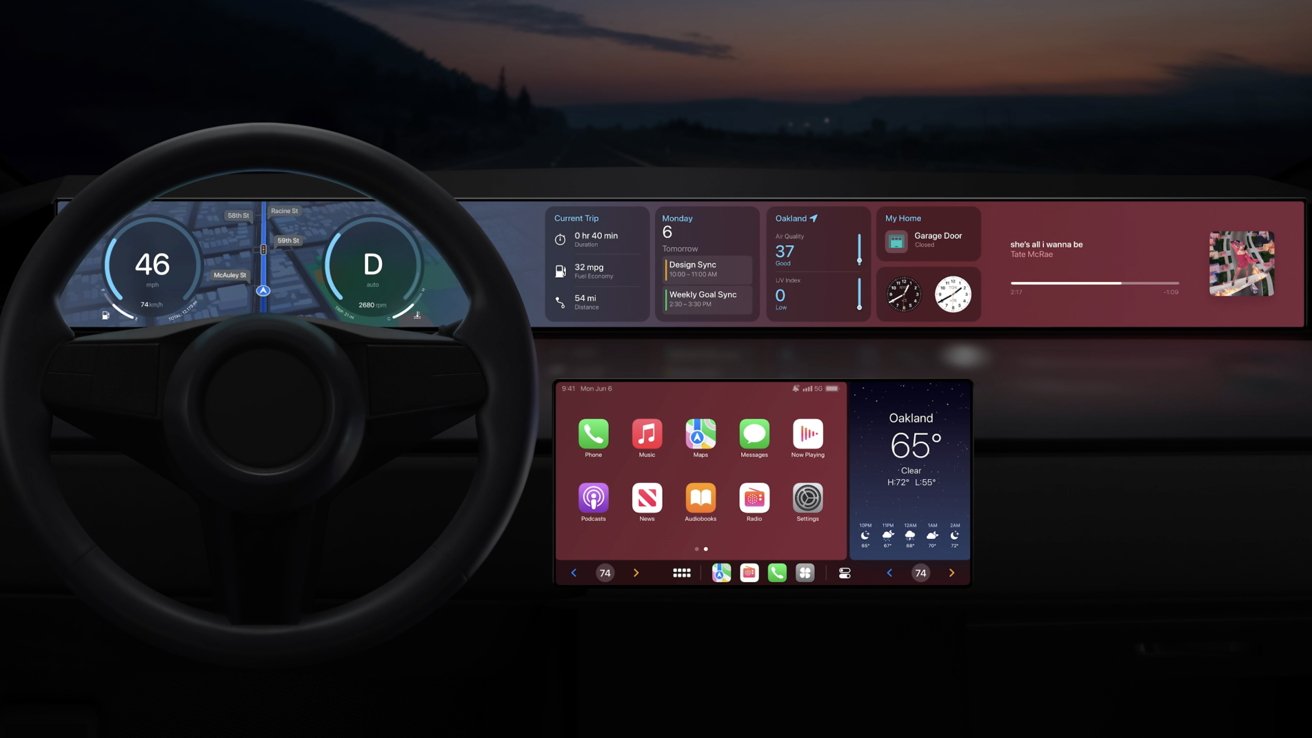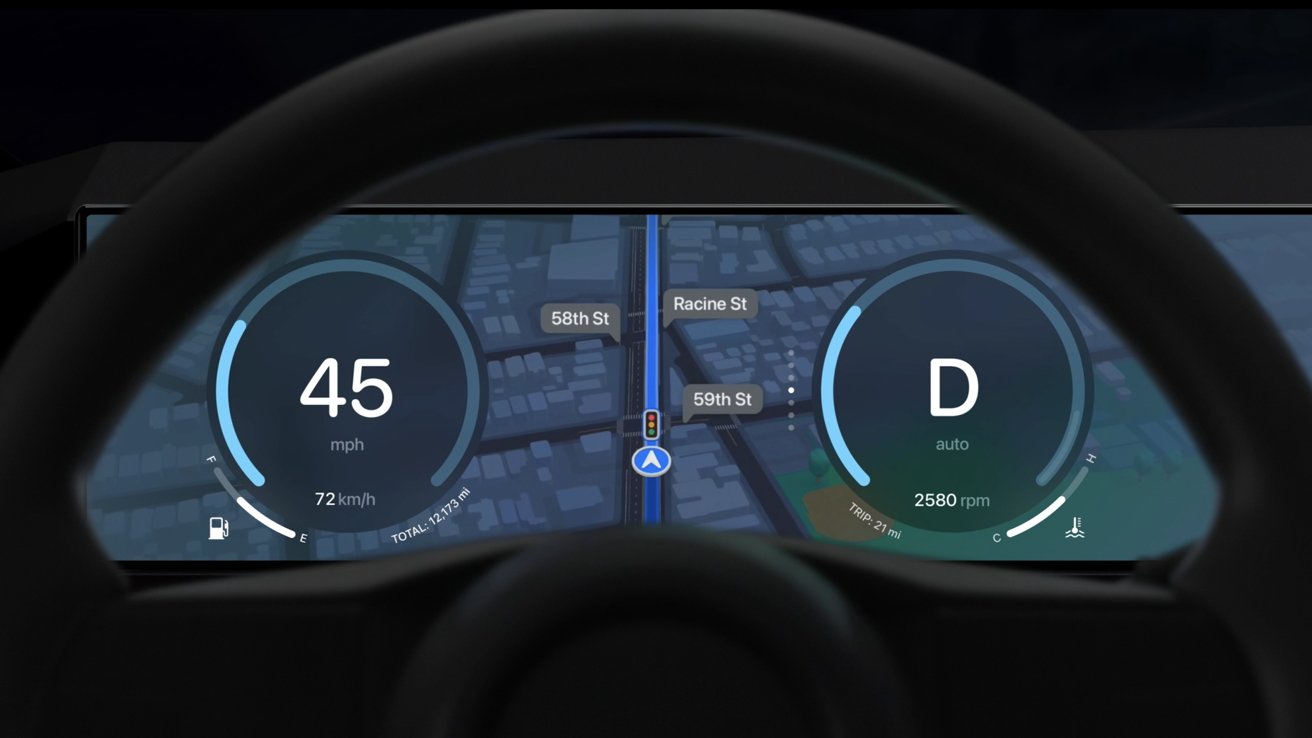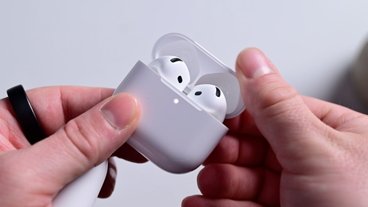Following the demise of Apple's own automotive project, the company's attention has turned to the next-generation CarPlay and its relationship with automakers.
Although Apple first debuted a next-generation CarPlay concept in the summer of 2022, only two automakers thus far — Porsche and Aston-Martin — have committed to the product. More carmakers have signed on to the more comprehensive and built-in Android Automotive technology.
This is different from the first-gen Android Auto, in that the Automotive system is embedded in the vehicle at the factory. Bloomberg's Mark Gurman reports that Apple's next-gen CarPlay still runs on the iPhone, which provides greater flexibility, but no opportunity for licensing.
As was demonstrated, next-gen CarPlay expands to multiple screens inside vehicles, and controls car hardware such as the climate system. Google has focused on signing up carmakers to use its embedded Android Automotive.
So far, BMW, Ford, General Motors, Lucide, Polestar, Porsche, Stellantis, and Volkswagen are all offering Android Automotive as an option for car buyers. The industry maintains support for CarPlay due to the preference of iPhone-owing car buyers.
So far, Apple has focused on high-end carmakers for commitments to support next-gen CarPlay. With the so-called "Apple Car" project shutting down, Apple may focus on the new CarPlay to strengthen relationships with the industry.
Currently, Apple has no plans to monetize the new CarPlay, either by charging manufacturers to license it or offering a paid tier for users. The company presently works with each supporting manufacturer to create a custom bespoke version to work with its vehicles.
After shutting down the Apple Car project, Gurman offers that this could be an opportunity for Apple to earn from CarPlay itself.
He reckons that Apple could start charging car producers to support CarPlay, on the belief that some consumers won't consider vehicles without the feature.
Gurman also proposes Apple could continue to use the older version of CarPlay as a free option, but then to charge for the newer upgrade.
Apple could also go down the route of eliminating per-manufacturer custom versions in favor of templates for the operating system. This approach would still allow customization of CarPlay, potentially by users as well as car makers.
 Charles Martin
Charles Martin





-xl-m.jpg)


-m.jpg)






 Amber Neely
Amber Neely
 William Gallagher
William Gallagher
 Malcolm Owen
Malcolm Owen

 Mike Wuerthele
Mike Wuerthele


 Thomas Sibilly
Thomas Sibilly







32 Comments
Wouldn't consider a car without carplay
I'd be scared to own a car w/Android anything.
If my Sony TV with its Google TV is any indication of app reliability, I could imagine a situation where I'd have to reboot an app to have it function correctly.
Not something, I want to do while driving!